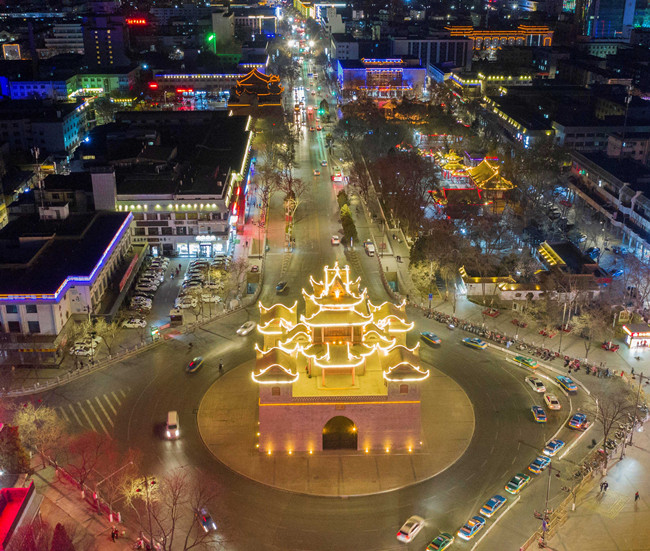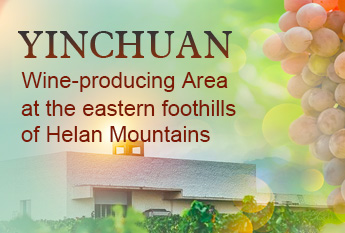Xingqing district

Night scenery of Xingqing district [Photo/xqq.gov.cn]
Xingqing district is under the jurisdiction of Yinchuan city. It borders the Etuokeqian Banner of the Inner Mongolia autonomous region to the east, Tanglaiqu to the west, Lingwu city and Yongning county to the south, Helan county and Pingluo county to the north. It has a total area of 828 square kilometers and a cultivated land area of 228,000 mu.
The district has jurisdiction over two townships and two towns, 11 sub-district offices, 35 administrative villages and 105 communities, with an urbanization rate of 90.04 percent.
Founded in the third year of the Yifeng period (AD 678) of Tang Dynasty, it was then known as Huaiyuan county. In the fourth year of the Tianxi period (AD 1038) of the Song Dynasty, Li Yuanhao of the Tuoba family built the Western Xia kingdom with its capital in Xingqingfu. During the Ming Dynasty, Ningxia town was set up here and it became one of the "nine important towns" in China. In the Qing Dynasty, Ningxia Mansion was set up.
The district has a large population. There are 808,282 residents, including 24 ethnic groups including Hui, Han, Manchu and Mongolian. The Han population is 582,800, the Hui population 153,300 and other ethnic minorities are 19,300, accounting for one tenth of the total permanent population of the autonomous region.
There are about 90 kindergartens and 67 other schools, and medical units including six public hospitals above the second level and 27 private hospitals.
Over the last three years, attracting investment has been a priority of the autonomous region, with a total investment of 31.8 billion yuan ($5 billion). Well-known enterprises such as Country Garden, Vanke, Seazen Holdings and Baofeng have settled in Xingqing district.
In the future, Xingqing district will take efforts to build "four highlands" of consumption, living, education and health care, and promote the development of modern service industry demonstration belt, eco-cultural tourism belt along the Yellow River, Xinhua Business Circle and Youai New Business Circle. It will implement the "six empowerment projects" of digital innovation, industrial upgrading, urban renewal, integration of culture and tourism, green development and improvement of people's livelihood.
Xingqing district will vigorously cultivate six industries: digital economy, cultural tourism, health care, milk, flower planting and green food. It will strive to create a leading area in the construction of ecological protection and high-quality development pioneer areas in the Yellow River Basin.

 Yinchuan Wine-producing Area at the eastern foothills of Helan Mountains
Yinchuan Wine-producing Area at the eastern foothills of Helan Mountains A promising Sci & Tech center in NW China
A promising Sci & Tech center in NW China Party building stories in Yinchuan's Xixia district
Party building stories in Yinchuan's Xixia district